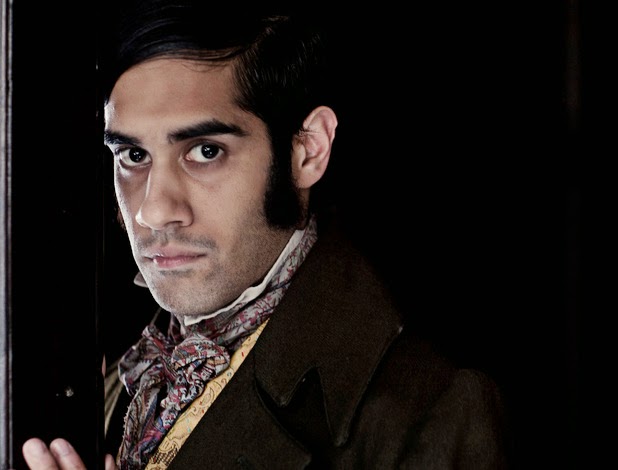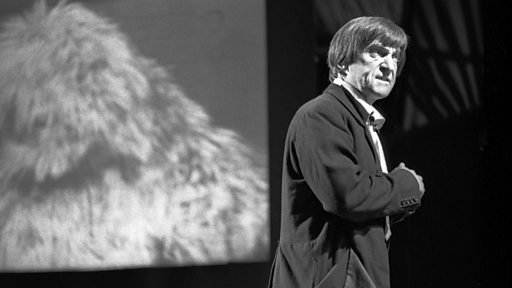Bournemouth University
"Kill The Moon" (2014) continues the tradition of parcelling difficult moral decisions into the Doctor’s adventures. Fully in keeping with the Twelfth Doctor’s escapades thus far, the resolution of its central dilemma is left to Clara. When it becomes apparent that the moon is not a benign lump of rock, but an egg hatching into an alien of unknown dangerousness, the Doctor refuses to settle the question of whether to destroy the moon or allow the alien to be born. It is expressly left with three humans - Clara, Courtney, and Lundvik - to decide. The resulting scene is interesting from the constitutional lawyer’s perspective because of two interlinking points it raises about human rights, democracy, and constitutionalism. This blog post seeks to briefly note these implications (other readings of the episode have of course been made: see for example this piece on the ‘Whovian Feminism’ blog about the episode’s relationship to abortion).
1. The Doctor abandons the three humans to decide on the moon’s fate for the following reason: ‘there are moments in every civilization’s history in which the whole path of that civilization is decided … it’s your choice’. The message here is that humans must decide for themselves what moral values should underpin their new society and its laws. From the perspective of constitutional law, the significance of this scene can be explained with reference to the literature on referendums. Tierney (2009) argues that if the democratic legitimacy of the state ultimately founds on popular sovereignty, any structural alterations to the rules governing state powers demand the approval of that constituent power. As Levy (2013) states, referendums are designed to approve or disapprove of changes ‘intended to bind present and future citizens to defined public values, policies, and structures and limits on power’. Just as constitutional referendums are supposed to provide popular approval for a shift in fundamental legal principles, the Doctor intends that the moon’s future is determined by those whose fate it so profoundly affects. He recuses himself from the decision because, in his own words, ‘whatever future humanity might have depends upon the choice that is made right here, right now … I can’t make this decision for you … some decisions are too important not to take on your own’. This is humanity’s decision, and at the root of any legitimate constitutional order must be the ownership of that order by its citizens.
2. The second point arises from the fact that Clara’s ultimate decision seemingly goes against the majority’s wishes. After a global vote (albeit based around a dubious mechanism involving the moon-facing half of the Earth switching their lights on or off - some may seek the views of the other side of the globe, or those who had no electricity?) it becomes apparent that the consensus is in favour of destroying the moon. If this is the decision upon which Earth wishes to base its future, how can we reconcile Clara’s anti-majoritarian intervention with the founding of a constitutional order based on popular consensus? The answer lies in how fundamental rights protection fits into democracy and constitutions. In Freedom’s Law (1996) Dworkin argues that democracy is not purely about the majority will. It necessitates the protection of rights that, although they may not always serve the majority, protect the idea of equality upon which any legitimate constitutional and democratic order must be based. Dworkin terms this a ‘constitutional conception’ of democracy. Clara’s decision to protect the moon offers a Dworkinian twist on the constitutional referendum: a frustration of popular sovereignty that foregrounds fundamental rights within the constitutional order. The Earth’s future is based on the protection of basic equalities as well as the popular will. This is a form of constitutionalism that derives its legitimacy from not only a ‘founding moment’ of expressed constituent power. It is also founded on a recognition that a breach of fundamental rights - here the right to life - would be inimical to a legal order whose legitimacy flows from a commitment to equality. The newly constituted order cannot be allowed to make decisions that would take away the basic rights - here the right to life - of those within its jurisdiction, because this would contradict the basis of their new society, set to ‘spread across the stars’. Clara’s actions are an interesting exhibition of this approach to constitutionalism.
Bibliography
Ronald Dworkin, Freedom’s Law (Harvard UP 1996).
Ron Levy, ‘"Deliberative Voting": Reforming Constitutional Referendum Democracy’ [2013] Public Law 555.
Stephen Tierney, ‘Constitutional Referendums: A Theoretical Enquiry’ (2009) 72 Modern Law Review 360.









.png)
.png)






.JPG)




.jpg)







